
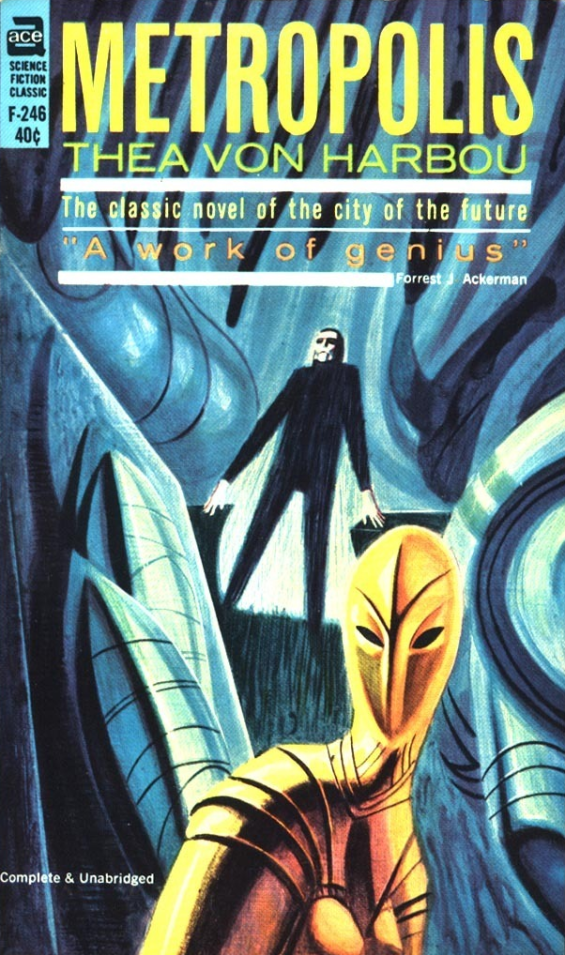
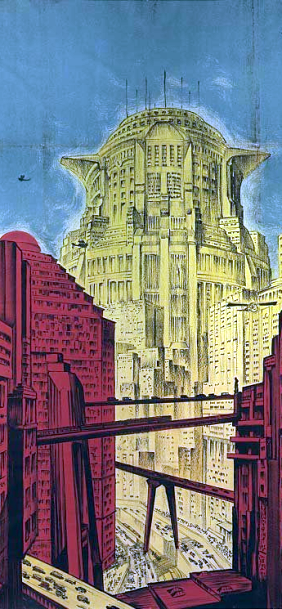 I wrote about it airing six year ago, but I’ve just now heard it.
I wrote about it airing six year ago, but I’ve just now heard it.
Metropolis, an astoundingly great radio dramatization of a famous novel that was turned into a famous movie, is nuanced, deep, surprising, and totally, idea based.
I’m astounded, really and truly astounded and amazed too at the depth and power an hour long program is able to achieve.
The script has humor, skepticism, cynicism, hope, sex, romance, informative infodumps, and a city full of pathos.
The production, acting, pacing, and composite audio experience is completely awe inspiring.
What gets me most is that even though it is based on a 1926 novel by Thea von Harbou, this version of Metropolis is, arguably, even more relevant than either Brave New World (1931) or 1984 (1949).
Those two classics don’t feel wholly and completely modern – this production of Metropolis does. It’s modernity is ripe, it’s like an episode of Black Mirror, and it should be on your radar.
Still not sold? Then imagine a Science Fiction version of Fight Club but set in the world of The Space Merchants or Judge Dredd and imagine it written by either Philip K. Dick or Frederik Pohl.
Here’s a review by Elisabeth Mahoney of The Guardian:
An audacious portrayal of a futuristic city as much as a state of mind, and an iconic film to boot, Metropolis (Radio 4, Friday) doesn’t exactly scream radio adaptation. But writer Peter Straughan and director Toby Swift, who won the Prix Italia in 2004 for their adaptation of Fritz Lang’s M, clearly aren’t put off by such hurdles. Their Metropolis was all deliciously claustrophobic intensity and dark interiority; their mega-city full of bubbling, menacing sounds you soon wanted to shut out. Without the famous visuals, you never really got a sense of the scale of Lang’s vision – you didn’t believe in the 62 million workers in Metropolis – but you did get the chilling psychological dimension of the dystopia. Edward Hogg, as Freddy, though sounding like a young Woody Allen at times, convinced as the alienated, lonely outsider who manages to subvert the mega-state from within. There were laughs, too, at least early on. “When was the last time you slept?” a therapist asks a suicidal Freddy. “About eight years ago,” says Freddy. “No,” the therapist concludes, “I don’t think that’s significant.”
Peter Straughan, the adaptor, and Toby Swift, the director, have achieved a classic for our time and for the ages – this is highly, highly recommended!

 Thea von Harbou’s Metropolis
Thea von Harbou’s Metropolis
Adapted by Peter Straughan; Performed by a full cast
MP3 via TORRENT – 57 Minutes [RADIO DRAMA]
Broadcaster: BBC Radio 4 (Friday Drama)
Broadcast: March 24, 2006
Available via RadioArchive.cc
Freder, the protagonist of Metropolis is an underworked “captain” in a high level position in the futuristic consumer society of the mega city named Metropolis. Feeling suicidal, but unable to understand why, Fredor switches identities with a low level “product insertion” – a kind of telemarketing – but failing at that Fredor soon finds himself working for Maria, an imperfect beauty with all the answers. Maria plunges Fredor into the depths of her underground conspiracy to disrupt the workings of society.
Directed by Toby Swift
Cast:
Freder – Edward Hogg
Maria – Tracy Wiles
Josaphat – Damian Lynch
Schmale – Peter Marinker
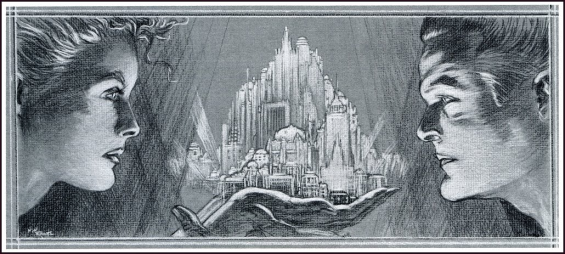
Posted by Jesse Willis
[Use Omitron! Omitron, use it! Use Omitron, it’s great!]

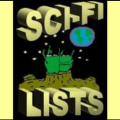
 The CBS Radio Workshop was an experimental dramatic radio anthology series that aired on CBS radio from January 1956, until September 1957. Subtitled “radio’s distinguished series to man’s imagination,” it was a revival of the earlier Columbia Workshop, broadcast by CBS from 1936 to 1943, and it used some of the same writers and directors employed on the earlier series. Its first two episodes were a two-part adaptation of Aldous Huxley’s dystopian stunner Brave New World. It has some strong claims to being the definite adaptation as it is both introduced and narrated by Aldous Huxley himself. Here’s how Time magazine’s February 6, 1956 issue described it in their review:
The CBS Radio Workshop was an experimental dramatic radio anthology series that aired on CBS radio from January 1956, until September 1957. Subtitled “radio’s distinguished series to man’s imagination,” it was a revival of the earlier Columbia Workshop, broadcast by CBS from 1936 to 1943, and it used some of the same writers and directors employed on the earlier series. Its first two episodes were a two-part adaptation of Aldous Huxley’s dystopian stunner Brave New World. It has some strong claims to being the definite adaptation as it is both introduced and narrated by Aldous Huxley himself. Here’s how Time magazine’s February 6, 1956 issue described it in their review: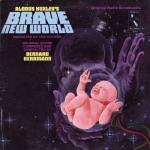


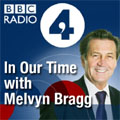

 The Fall of the House of Usher:
The Fall of the House of Usher:  The Legend of Sleepy Hollow:
The Legend of Sleepy Hollow:  Brave New World:
Brave New World:  The Scarifyers series continues on BBC 7 with
The Scarifyers series continues on BBC 7 with